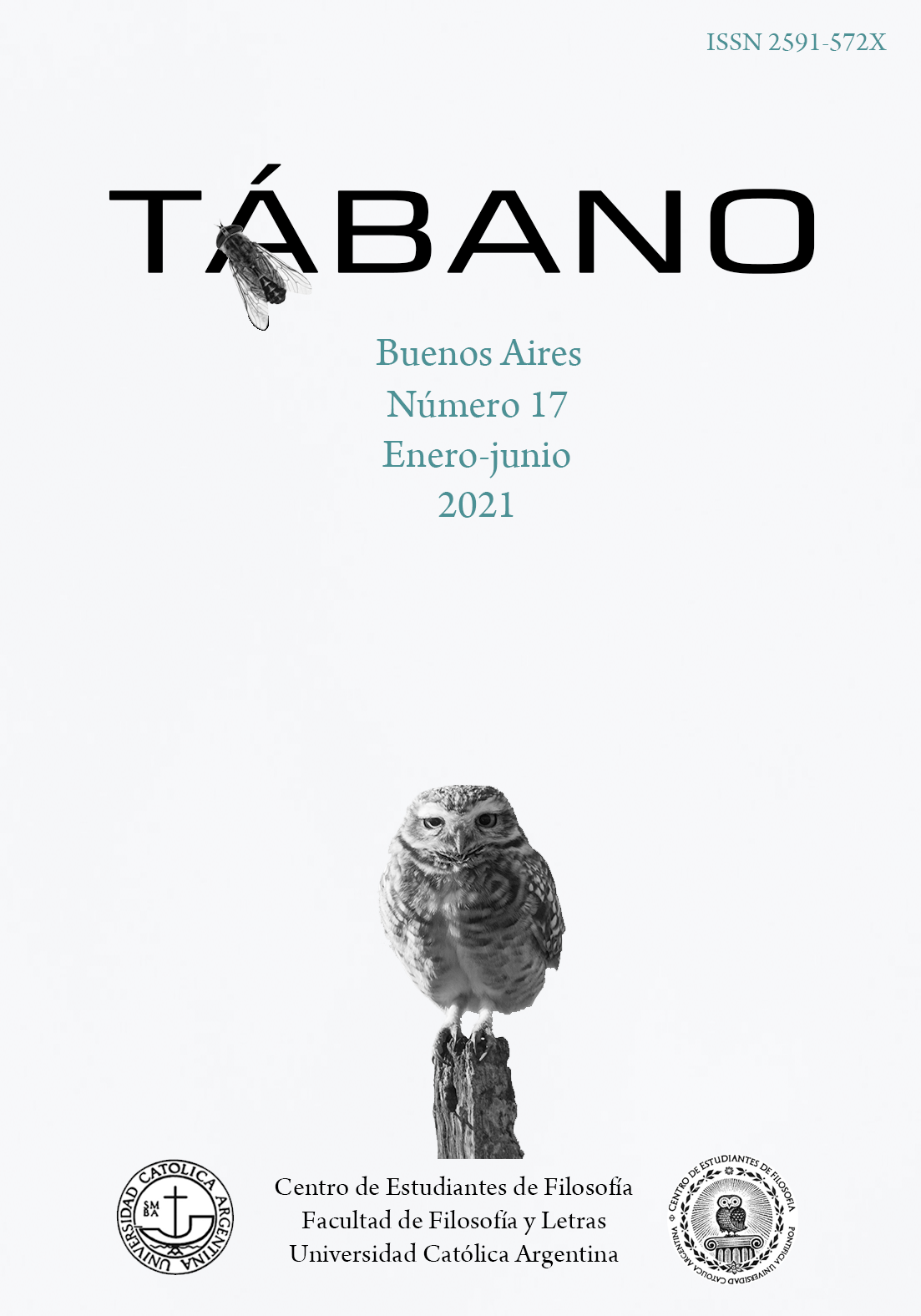The god of thieves
DOI:
https://doi.org/10.46553/tab.17.2021.p57-68Palavras-chave:
Hermes, hermenéutica, intertextualidad, lenguaje, comunicaciónResumo
Hermes is a complex god, one that is representing communication and, therefore, that is the god of travelers, merchants, and also of thieves. Hermes is also present, somehow, in the philosophical tradition of hermeneutics. What seems to be proper to this god is the lack of properties and the lack of a territory that is considered to be his own. What is characteristic of this god is that he inhabits the space of the in-between, there where the game of appropriations, des-appropriations and re-appropriations is played; the space of commerce, briefly said. This essay wants to explore the figure of Hermes as a “god of thieves” and examine this ultimate dimension of every meaning: its being given to the infinite commerce of language, to the unending game of inter-textuality. If hermeneutics finds in Hermes its mythical figure, it is because he rejoice in this permanent exchange in which words and meanings cannot be appropriated and must be des-appropriated if the game of infinite commerce is to be continued, that is, if the word is still in passing from one to the other, in an unending dia-logue.
Downloads
Referências
Grassi, M. (2017). La claustrofobia de la Academia. Contemporánea: Revista de Ética e Filosofia Política (Caruaru, Brasil), 3/1, pp. 31-60.
Grassi, M. (2020). Theology, in between texts. An essay on context and intertextuality. En: Robinson, Matthew and Inderst, Inja (eds.). What does theology do, actually? Observing theology and the transcultural (PP. 87-100). Leipzig: Evangelische Verlagsanstalt.
Downloads
Publicado
Como Citar
Edição
Secção
Licença
Direitos de Autor (c) 2021 Martin Grassi

Este trabalho encontra-se publicado com a Licença Internacional Creative Commons Atribuição-NãoComercial-CompartilhaIgual 4.0.



